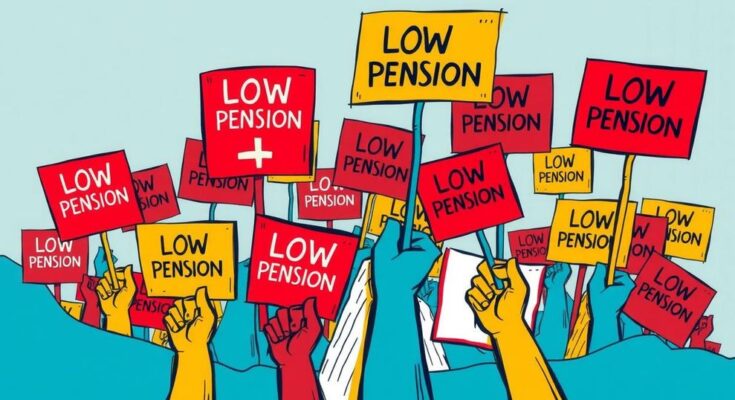On Wednesday, protests against low pensions in Buenos Aires turned violent with police clashes, leading to at least 124 arrests and numerous injuries. The unrest is a response to austerity measures by President Javier Milei, which have significantly impacted the economy and increased poverty rates. Trade unions condemned the government’s actions, calling them brutal and suppressive. Governor Axel Kicillof also criticized the response, emphasizing the need for protecting democratic rights.
A violent clash occurred in Buenos Aires during a protest against low pensions on Wednesday, which was fueled by austerity measures introduced by President Javier Milei. Police and demonstrators engaged in violent exchanges, resulting in over 124 arrests and numerous injuries, including that of a photographer who sustained critical injuries from a tear gas canister.
The police utilized tear gas and rubber bullets to disperse protesters, who retaliated by throwing stones and igniting a police vehicle. The Security Ministry confirmed a total of 124 arrests and reported injuries to 26 law enforcement personnel, including one with a gunshot wound. Meanwhile, at least 20 protestors were injured in the ensuing chaos, including one serious case.
Several left-wing and trade union members joined the protest, while the presence of football ultras, known as “Barrabravas,” was also noted. The trade union federation CGT condemned the government’s response, labeling it as a brutal repression of a legitimate demonstration, which included injuries to pensioners and bystanders.
Buenos Aires Governor Axel Kicillof criticized the police actions as ferocious and illegal, stating, “What happened today is an attack on fundamental democratic rights.” He expressed concern for individuals injured during the protest and condemned the government’s response.
Since taking office in December 2023, President Milei has implemented severe austerity measures, leading to mass dismissals of civil servants and significant cuts to social programs. While inflation rates have been reduced, the economic stifling has resulted in over 50% of the population living below the poverty line, raising concerns about the long-term effects of such measures.
The recent protests in Buenos Aires highlight rising tensions in Argentina due to austerity measures imposed by President Javier Milei’s administration. The violent clashes between demonstrators and police underscore the frustration regarding low pensions amid severe economic conditions. With over half the population struggling under the poverty line and many calling the government’s approach brutal and undemocratic, the need for effective dialogue and solutions is paramount as the nation navigates these turbulent times.
Original Source: www.newsbreak.com




